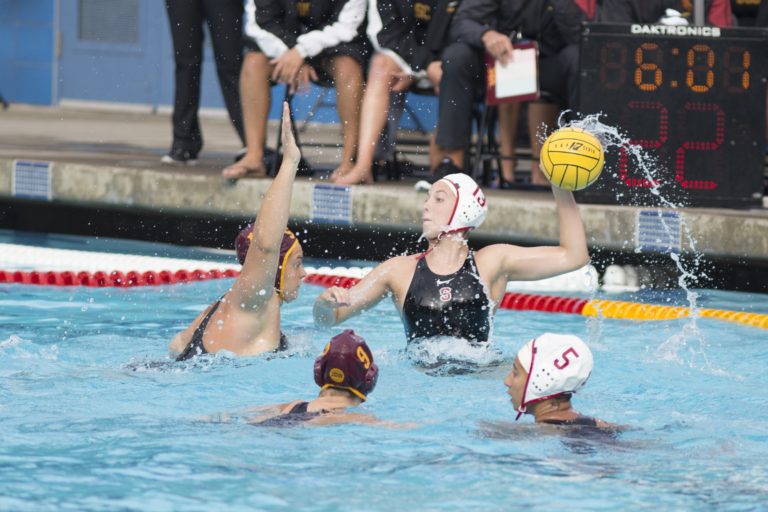One of the great things about Stanford is that the university tries to create an environment where non-student-athletes and student-athletes can run in the same friend circles and share similar on campus experiences. Between my freshman dorm, my sorority and the Daily, I’ve been able to involve myself in communities that mix athletes and non-athletes. However, in many ways, non-student-athletes and student-athletes lead different lifestyles on campus. I reached out to some of my non-student-athlete friends and asked them what they wonder most about their counterparts. I tried to answer the questions to the best of my ability based off of my experiences playing water polo here at Stanford.
1. Where do you eat on campus, and what do they serve?
Student athletes eat at a variety of different places around campus, mostly depending on where they live and what their practice schedule looks like. Often times, we eat at the same places non-student athletes do. Personally, I live in a house with a chef. In the morning I make my own food, which is often just eggs, oatmeal, toast or something else that’s quick and easy. At lunch I eat at the house with the rest of the people in my sorority.
The only time my eating schedule really differs from non-student athletes is before and after practice. Before practice, I normally grab a snack from “Farmstand,” a refueling station where athletes can get up to six items each day for pre or post-workout food. After practice, I go to athlete dinner, which is also available to non-athletes who have meal plans. Because our practice ends at 6:30 p.m., by the time we shower and change, many campus food options are closed. Since athlete dinner is open until 9 p.m., it allows us to eat dinner after practice.
2. How do you manage school work, especially when away on tournaments?
I try to be proactive when I know I’m going to be missing class for a tournament by talking with my professors and TAs in advance, so that I understand what is expected of me as far as makeup work goes. We normally have time in between games and at night to work on classwork while traveling, and as long as I am efficient with my time, I usually manage to get all my work done. The key is using the plane and bus rides to do as much work as possible.
3. How do you handle missing exams while you are traveling?
I’m going to be honest…I haven’t encountered this situation yet (possibly because I’m an English major with lots of essays to write and not many exams to take). But some of my teammates have, and it seems quite stressful. They have to take midterms and finals on the road wherever we are. The environment isn’t really conducive to taking an exam; there is limited time and few quiet spaces to focus.
4. How many extracurriculars are you involved in and how much time do you have to commit to them outside of schoolwork and practice?
Outside of water polo and schoolwork, I have limited time to explore other interests through extracurriculars. The Daily is the only extracurricular that I am involved with. I don’t think I would be able to successfully take on any more work at this time, but I’m grateful that I’m able to write for the Daily. For me, it is very important to be as well-rounded as possible and pursue non-athletic interests.
5. Do you get annoyed when people only ask you questions about your sport and don’t ask you anything about other aspects of your life?
Yes and no. Water polo is such a big part of my life and takes up so much of my time that I understand why people mostly associate me with sports. Also, I love talking about water polo because I am passionate about it. At the the same time, I do have other interests. Like I mentioned above, it is important for me to be well-rounded and I’d love for people to know more about the other aspects of my life that define me.
6. What do student athletes think of non-student athletes?
I love non-athletes; I’d say 50 percent of my best friends here don’t play a sport. If I had gone to a different college to play water polo, I would have lived with my teammates throughout my whole college experience. At Stanford, the freshman random roommates and then the Draw allowed me to expand beyond just athlete friends in order to bond with non-athletes. In general, the people at Stanford, whether athletes or not, are highly intelligent, really unique and have had some cool life experiences.
Contact Aria Fischer at afisch ‘at’ stanford.edu.
